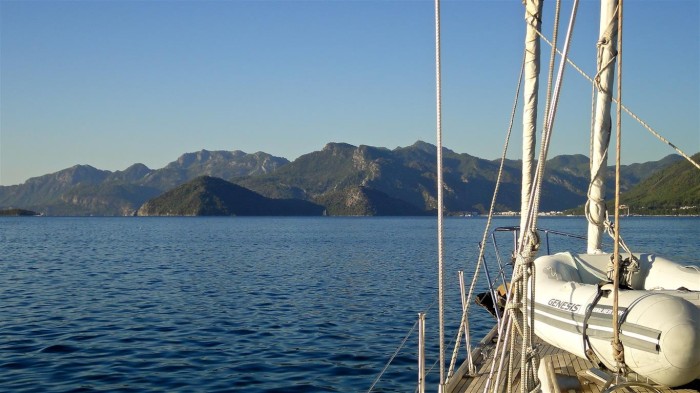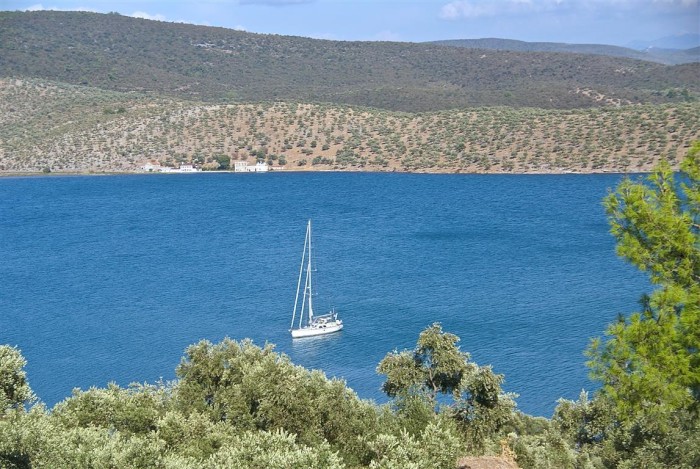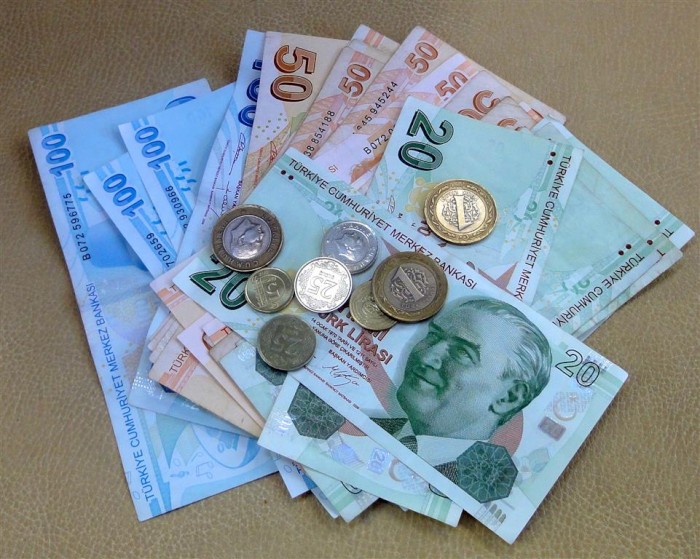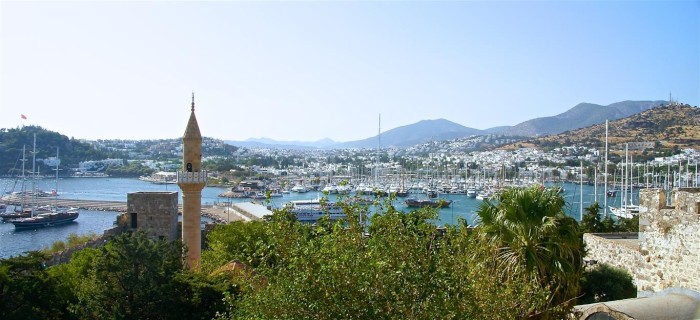Flying through the Gulf Stream
Charleston, SC USA We’ve done it before – sailed up the East Coast from Florida to South Carolina...

Last year we went to seven different countries; this year, just two. But getting settled in Greece and Turkey this year has been more challenging than all seven countries last year combined. Greece was very strict with their rules and regulations, still they are pussycats compared to the requirements and procedures of Turkey.

Most of the time, when we enter into a new country, we go to the port police and work our way through the process. And that is exactly what we did when we arrived in Didim, Turkey. But after a few English – Turkish exchanges, an agent was called in and we were told that the agent had to help, meaning we had to pay the agent to help. Three hours, and mucho Euros, later, we were finally officially allowed to stay in Turkey for 90 days during the next six months. Berkeley East, however, was still not legal, as we had to wait for the lighthouse permit since she was over the 30-ton limit. Apparently, in Turkey, heavier boats use the lighthouses more than lighter ones.

Once the lighthouse permit was issued, we were reminded that we would need to get a “Blue Card” if we planned to cruise south of Didim. The Blue Card scheme is designed to protect Turkey’s marine environment and it tracks how often boats empty their toilet holding tanks. Upon registration for our Blue Card, we were asked how large our holding tanks were and how many people could occupy our boat. This information would determine how often, according to the Blue Card scheme, we had to bring Berkeley East into a pump out station. Too much pooping without pumping can result in a very foul fine.

The next step was money. In most countries since we’ve been cruising the Med, we’ve been dealing in Euros. But Turkey is not part of the European Union and they trade in Turkish Lira. What is somewhat confusing though is that the ATM machines in Turkey dispense Turkish Lira, Euros and US Dollars. The question was which button to push, US Dollars because that is the bank you are drawing from? Or Turkish Lira because that is what you need? It turned out to be the latter and for $500 US Dollars we got 1,000 Turkish Lira. We were very excited that our money would go further in Turkey, or so we thought.

So since we were now legal and flush, we needed communication. Internet in Turkey is simple: go to the phone store, buy a router and a sim card, and poof you have internet for five devices. Unfortunately, a phone connection is not as easy. After much discussion with fellow cruisers, we learned that Turkey requires international telephones to be registered. As we discovered first hand, this registration takes about four hours and involves a trip to the phone store for a sim card, a visit to the tax office to pay a tax, a stop at the police station for residency documentation, and a return to the phone store for the final paperwork. You can just buy a sim card and it will work, but without registration it will stop functioning in two weeks and the phone will not be able to be used in Turkey ever again. The Turks are tough on telephones.

So with all the essentials, we can now cruise and travel in Turkey. We have much to learn about this unusual country and with 4,500 miles of coastline; it could take quite a while, which means we need to get yet another official Turkish document, a long-term visa.
